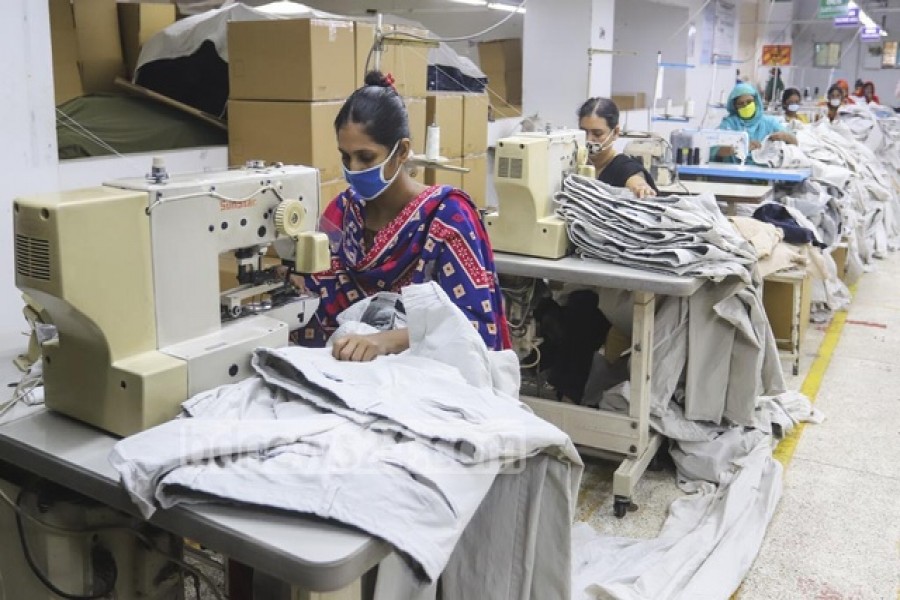
Published :
Updated :

The government's move to extend support to small and struggling garment factories -- particularly those hit hardest by the pandemic -- through cash incentive is most welcome. Not only a timely move, it is also innovative in that this is the first time that instead of the garment sector as a whole, the smaller export-oriented garment units are treated favourably with a package of cash benefit meant only for them. These garment units, falling under the SME category in terms of their export turnover up to $ 5.0 million, will be eligible to receive the cash incentive. A notice issued late last week by the Bangladesh Bank says such factories producing knitwear, woven items, sweaters, terry towels and home textiles would be eligible for the cash incentive. It may be noted that factories, the exports of which amount to no more than $5.0 million are considered SMEs in the garment sector. According to the notice, 4.0 per cent incentive would be provided on 30 per cent value addition irrespective of whether garment items are made out of imported materials or not. The SMEs will also be able to avail of the benefit on export receipts of last fiscal year.
By allowing the benefit under the new arrangement, the government has strayed away from its cash incentive policy followed in the past which stipulates the use of local materials in the manufacture of apparels for export. Now considering the hardship of the smaller units, they have been exempted from the condition which may have an impact on local textile mills. Nonetheless, this being a special arrangement under extraordinary circumstances deserves to be appreciated as it is directed to help the small units ride out the prevailing difficulties facing export. It may be noted that since 2009, garment factories as a whole are being provided with 4.0 per cent cash incentive on export receipts subject to use of local yarns and fabrics. Thus the facility now being offered to smaller units with relaxed conditions is a preferential treatment meant to help them out.
Clearly, this would offer the small units a breathing space for the simple reason that in a difficult time as now they will get some competitive edge over the big units because of the relaxed conditions. Observers, including industry insiders, feel that the move if materialised appropriately would greatly facilitate these units in accessing markets as well as reorganising their production processes to strengthen capacities for handling big volumes of export.
Since the country-wide lockdown, more than five hundred small and medium garment factories are either shuttered or are not in a position to keep their employees under regular payroll. Many of these factories faced order cancellation while others were denied payments by their overseas buyers. In this situation, leaders of the relevant industry associations have hailed the government decision as a proactive one. According to them this will particularly help units producing knitwear items as almost 50 per cent of the knitwear factories are SMEs.


 For all latest news, follow The Financial Express Google News channel.
For all latest news, follow The Financial Express Google News channel.